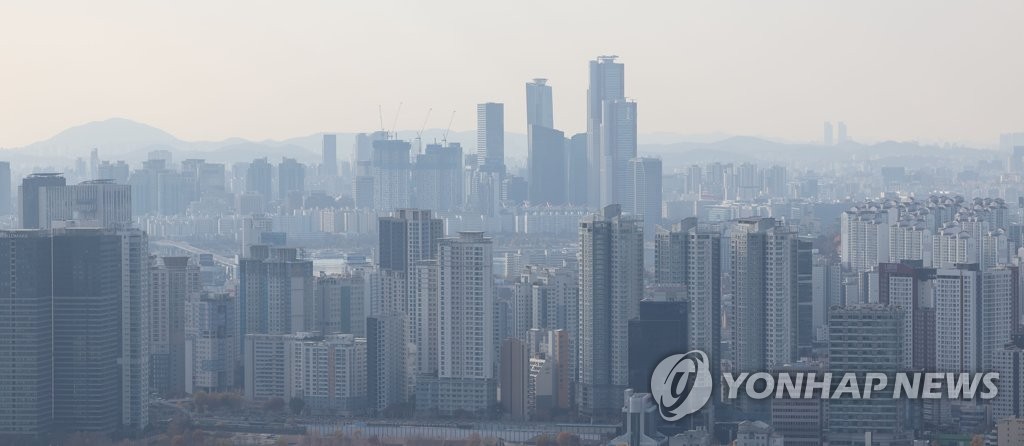- California Assembly OKs highest minimum wage in nation
- S. Korea unveils first graphic cigarette warnings
- US joins with South Korea, Japan in bid to deter North Korea
- LPGA golfer Chun In-gee finally back in action
- S. Korea won’t be top seed in final World Cup qualification round
- US men’s soccer misses 2nd straight Olympics
- US back on track in qualifying with 4-0 win over Guatemala
- High-intensity workout injuries spawn cottage industry
- CDC expands range of Zika mosquitoes into parts of Northeast
- Who knew? ‘The Walking Dead’ is helping families connect
Number of comprehensive real estate taxpayers above 1 mln for 1st time
The number of people subject to the so-called comprehensive real estate tax hovered above 1 million for the first time since the scheme was introduced in 2005 amid soaring overall property prices, data showed Monday.
A total of 1.3 million home and land owners will receive the tax invoice this year, up 289,000 from a year earlier, according to the Ministry of Economy and Finance. They are expected to pay a total comprehensive real estate tax of 7.5 trillion won (US$5.53 billion).
Of the total, some 1.22 million homeowners will be asked to pay a combined 4.1 trillion won, the ministry added. The number of homeowners subject to the tax marked a whopping fourfold growth from 2017.

This photo taken Nov. 20, 2022, shows apartment buildings in Seoul. (Yonhap)
The tax is levied on those holding multiple homes with their combined state-assessed price value exceeding 600 million won. For single-home owners, their taxation base stands at 1.1 billion won.
The scheme, often referred to as “taxes on the rich,” was introduced in 2005 to curb the speculative purchase of properties.
The ministry said the growth in the number of affected taxpayers came as the state-assessed price value of homes sharply rose from the previous year. In South Korea, the government taxes land and homes based on its annual assessment value instead of the actual market value.
“While the state-assessed price value of multi-unit homes rose 17.2 percent on-year, the taxation base remained unchanged,” the ministry said in a statement.
“The government made its best efforts to ease the burden of comprehensive real estate tax, but we also need a fundamental revision (of the system) in order to normalize the abnormal tax burden,” it added.
The ministry added it will continue to make efforts to ease taxation burdens on homeowners and seek to pass its proposed revision of the policy, currently pending at the National Assembly.
Under the revision, the tax will be applied to multiple-home owners with their combined state-assessed price value exceeding 900 million won. For owners of one home, the taxation base will be raised to 1.2 billion won.
Once passed, the ministry said the number of homeowners subject to the tax will sharply fall to 666,000 in 2023, which is similar to 665,000 tallied in 2020.











